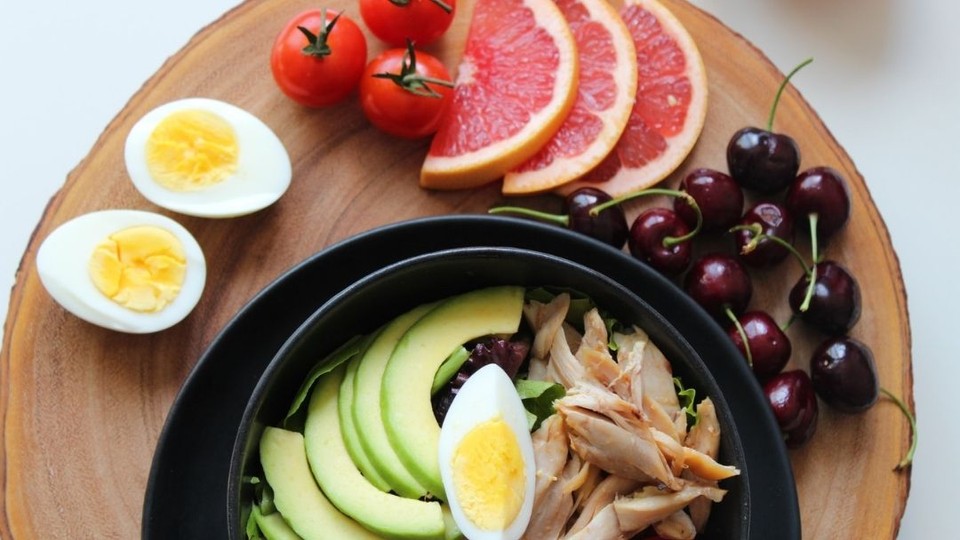The PCOS Weight Loss Diet: A Holistic Approach to Managing Symptoms
Polycystic ovary syndrome (PCOS) is a common hormonal disorder that affects women of reproductive age. One of the most frustrating and challenging symptoms of PCOS is weight gain or difficulty in losing weight. However, with the right diet and lifestyle changes, it is possible to manage PCOS and achieve weight loss effectively. In this article, we will explore the
PCOS weight loss diet
, which focuses on a holistic approach to address the underlying factors contributing to weight gain in PCOS.
Understanding PCOS and Weight Gain
PCOS is characterized by hormonal imbalances, insulin resistance, and ovarian cysts. These factors can contribute to weight gain and make it harder to shed excess pounds. Insulin resistance, in particular, plays a significant role in weight gain for women with PCOS. Insulin is a hormone that helps regulate blood sugar levels, and when the body becomes resistant to its effects, it leads to elevated insulin levels. This, in turn, stimulates the ovaries to produce more androgens (male hormones), which can disrupt the menstrual cycle and contribute to weight gain.

The PCOS Weight Loss Diet:
Balanced Macronutrients: A
PCOS Diet
should emphasize balanced macronutrients, including carbohydrates, proteins, and fats. Opt for complex carbohydrates like whole grains, legumes, and vegetables, as they have a lower impact on blood sugar levels. Include lean proteins such as poultry, fish, tofu, and beans, as they help stabilize blood sugar and promote satiety. Healthy fats like avocados, nuts, and olive oil are also important for hormonal balance and weight management.
Low Glycemic Index Foods: The glycemic index (GI) ranks foods based on how quickly they raise blood sugar levels. Choosing low GI foods can help regulate insulin levels. Include foods like sweet potatoes, quinoa, berries, and leafy greens, while limiting high GI foods like white bread, sugary snacks, and processed foods.
Adequate Fiber Intake: Fiber-rich foods are beneficial for weight loss and PCOS management. They help regulate blood sugar levels, promote satiety, and support digestive health. Include plenty of fruits, vegetables, whole grains, and legumes in your diet to ensure an adequate fiber intake.
Healthy Snacking: PCOS can often trigger cravings and hunger pangs. Instead of reaching for processed snacks, choose healthy alternatives. Opt for a handful of nuts, Greek yogurt, fresh fruits, or vegetable sticks with hummus to keep your energy levels stable and avoid unnecessary weight gain.
Regular Meals and Portion Control: Eating regular meals and practicing portion control are essential for weight loss in PCOS. Aim for three balanced meals a day and include healthy snacks if needed. Be mindful of portion sizes and listen to your body's hunger and satiety cues.
Hydration: Staying hydrated is crucial for overall health and weight management. Water helps flush out toxins, aids digestion, and keeps you feeling fuller for longer. Aim to drink at least eight glasses of water per day.
Physical Activity: Alongside a healthy diet, regular exercise is vital for weight loss in PCOS. Engage in a combination of aerobic exercises, strength training, and activities that promote flexibility and relaxation, such as yoga or pilates. Regular physical activity improves insulin sensitivity, helps burn calories, and supports overall well-being.
Conclusion
While managing weight loss with PCOS can be challenging, adopting a PCOS weight loss diet that focuses on a holistic approach can greatly improve symptoms and overall well-being. Remember, it's important to consult with a healthcare professional or a registered dietitian who specializes in PCOS to create a personalized plan tailored to your specific needs. By making sustainable lifestyle changes and being consistent, you can achieve weight loss, improve hormonal balance, and enhance your quality of life.
--
 Abdul Alim - 2023-07-22
Abdul Alim - 2023-07-22
Comments


